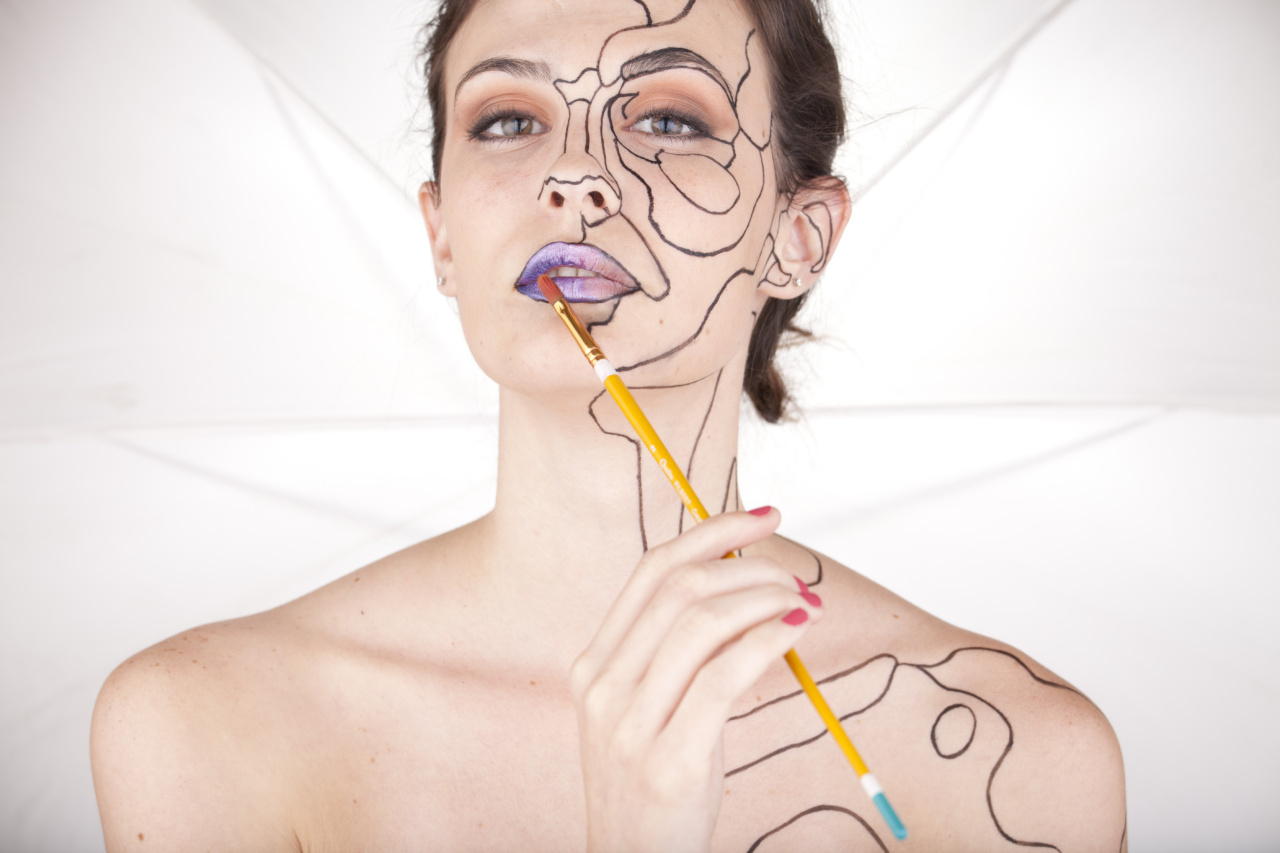Dehydration is a common condition occurring when your body loses more fluid than it takes in. While dehydration affects various organs and systems in the body, it can have a significant impact on the skin as well.
The skin is the largest organ of the body and plays a crucial role in protecting the internal organs from external factors. It also helps regulate body temperature and provides sensory information. When dehydrated, the skin loses its moisture and essential nutrients, leading to several negative effects.
Signs of Skin Dehydration
Recognizing the signs of skin dehydration is vital to take timely action and restore your skin’s health. Here are some common signs to look out for:.
1. Dryness and Rough Texture
One of the earliest signs of skin dehydration is dryness. Dehydrated skin lacks moisture, making it feel rough, tight, and flaky. It may also appear dull and lackluster.
2. Increased Sensitivity
Dehydrated skin tends to become more sensitive and reactive. It may feel irritable, itchy, and experience stinging or burning sensations even with mild exposure to environmental factors or cosmetic products.
3. Fine Lines and Wrinkles
Lack of moisture in the skin can accentuate the appearance of fine lines and wrinkles. When the skin is dehydrated, it loses its plumpness and elasticity, leading to the formation of more noticeable lines.
4. Dark Circles and Under-Eye Bags
Dehydration can contribute to the development of dark circles and under-eye bags. When the body lacks proper hydration, blood vessels under the eyes may dilate, causing a bluish tint. Puffiness and swelling may also occur due to water retention.
5. Skin Tightness and Discomfort
Dehydrated skin often feels tight and uncomfortable. This sensation is caused by the lack of moisture in the skin’s outermost layer, impairing its barrier function. It can also lead to a feeling of itchiness or even pain.
Effects of Dehydration on Skin’s Appearance and Health
Dehydration can have several negative effects on the skin’s appearance and overall health. Understanding these effects can help you take necessary steps to prevent and treat skin dehydration.
1. Premature Aging
When the skin is dehydrated, it loses its firmness, elasticity, and plumpness. This can accelerate the aging process, leading to the formation of wrinkles, fine lines, and sagging skin.
Premature aging caused by skin dehydration can make you look older than your actual age.
2. Increased Sensitivity and Irritation
Dehydrated skin is more susceptible to irritation, redness, and inflammation. It becomes less efficient at protecting itself from external irritants, such as pollution, allergens, and harsh weather conditions.
Additionally, the skin’s impaired barrier function can lead to increased transepidermal water loss (TEWL), making it even more prone to irritation and sensitivity.
3. Impaired Healing and Acne Breakouts
Since dehydration compromises the skin’s barrier function, it can hinder its ability to heal properly. Wounds, cuts, and acne breakouts may take longer to heal, and the risk of infection and scarring increases.
Inadequate hydration can also disrupt the skin’s natural exfoliation process, leading to a buildup of dead skin cells and clogged pores, further contributing to acne breakouts.
4. Dull and uneven complexion
Dehydrated skin lacks the natural radiance and vibrancy associated with healthy skin. The lack of moisture leads to a dull and lackluster appearance.
Uneven skin texture, flakiness, and an uneven distribution of melanin can result in an overall uneven complexion.
Effective Hydration Methods
Keeping your skin adequately hydrated is crucial for maintaining its health, appearance, and function. Here are some effective hydration methods to prevent skin dehydration:.
1. Drink Sufficient Water
The most fundamental and essential step is to drink an adequate amount of water throughout the day. Aim for at least 8 glasses of water, or about 2 liters, to keep your body hydrated from within.
Staying hydrated internally helps ensure your skin receives the necessary moisture.
2. Moisturize Regularly
Apply a hydrating moisturizer suitable for your skin type at least twice a day – once in the morning and once before bed.
Look for moisturizers that contain ingredients like hyaluronic acid, glycerin, ceramides, or natural oils to lock in moisture and nourish the skin.
3. Use Hydrating Facial Masks
Facial masks infused with hydrating ingredients can provide an extra boost of moisture to your skin. Look for masks containing ingredients like aloe vera, hyaluronic acid, honey, or cucumber.
Use them once or twice a week to provide instant hydration and rejuvenation to your skin.
4. Avoid Excessive Hot Showers
While hot showers may feel relaxing, they strip your skin of its natural oils and contribute to increased moisture loss. Limit your shower time and use lukewarm water instead of hot water to prevent further dehydration of the skin.
5. Protect Your Skin from the Sun
UV rays from the sun can cause damage to the skin and increase moisture loss. Apply a broad-spectrum sunscreen with a sun protection factor (SPF) of 30 or higher before stepping out in the sun.
Reapply every 2 hours, especially if you are sweating or swimming.
6. Humidify Your Environment
Dry indoor environments can contribute to skin dehydration. Use a humidifier in your home or office to add moisture to the air. This can help prevent excessive moisture loss from your skin.
7. Avoid Harsh Cleansers
Harsh cleansers and soaps can strip the skin of its natural oils and disrupt its moisture balance. Opt for gentle cleansers with a pH-balanced formula to cleanse your skin without causing further dehydration.
8. Eat Hydrating Foods
Incorporate hydrating foods into your diet to support your skin’s hydration. Fruits and vegetables with high water content, such as watermelon, cucumber, oranges, and strawberries, can provide hydration from within.
9. Limit Alcohol and Caffeine Consumption
Alcohol and caffeine can contribute to dehydration. Limit your consumption of alcoholic and caffeinated beverages as they can have a diuretic effect, promoting increased urine production and water loss from the body.
10. Practice a Skincare Routine
Develop a consistent skincare routine tailored to your skin type and concerns. Cleanse, tone, moisturize, and protect your skin daily to maintain its hydration levels and overall health.
By implementing these effective hydration methods, you can prevent or treat skin dehydration and maintain a healthy, radiant complexion.
Proper hydration is not only essential for your skin’s appearance but also plays a critical role in its overall health and functionality.






























